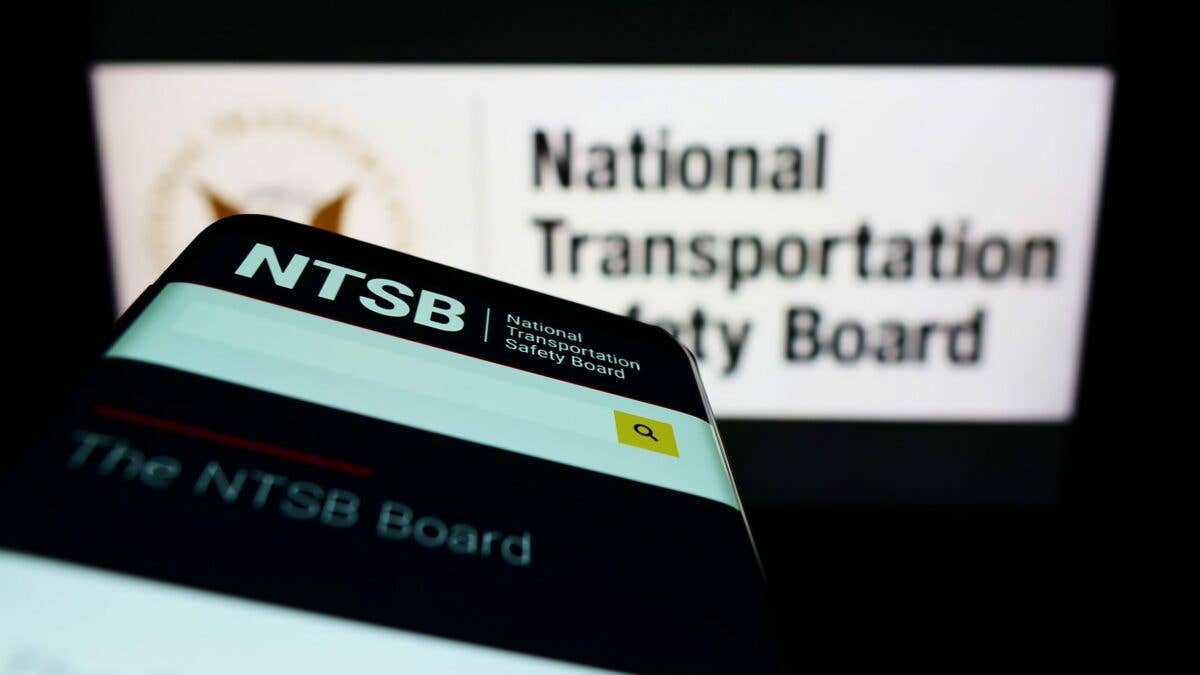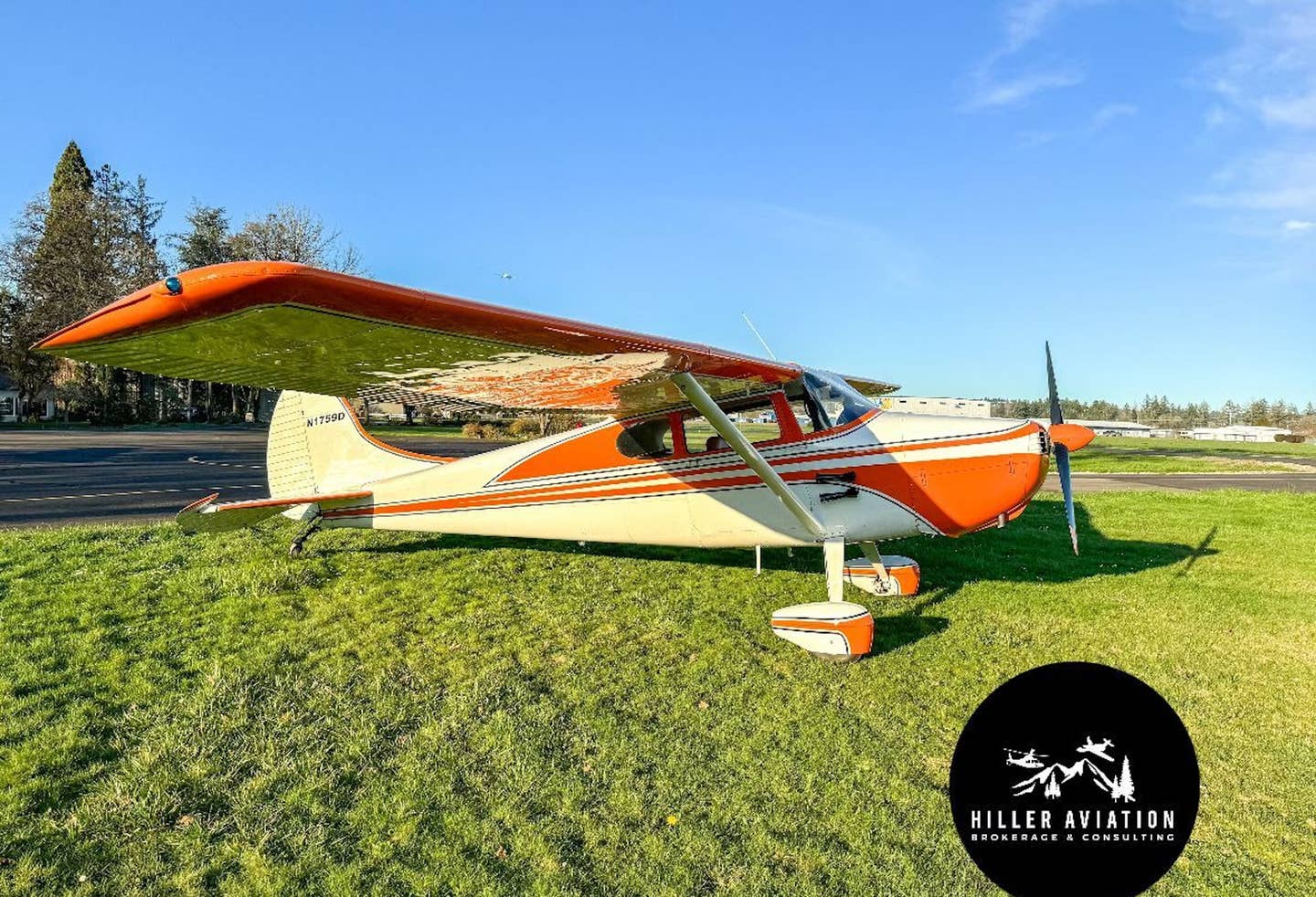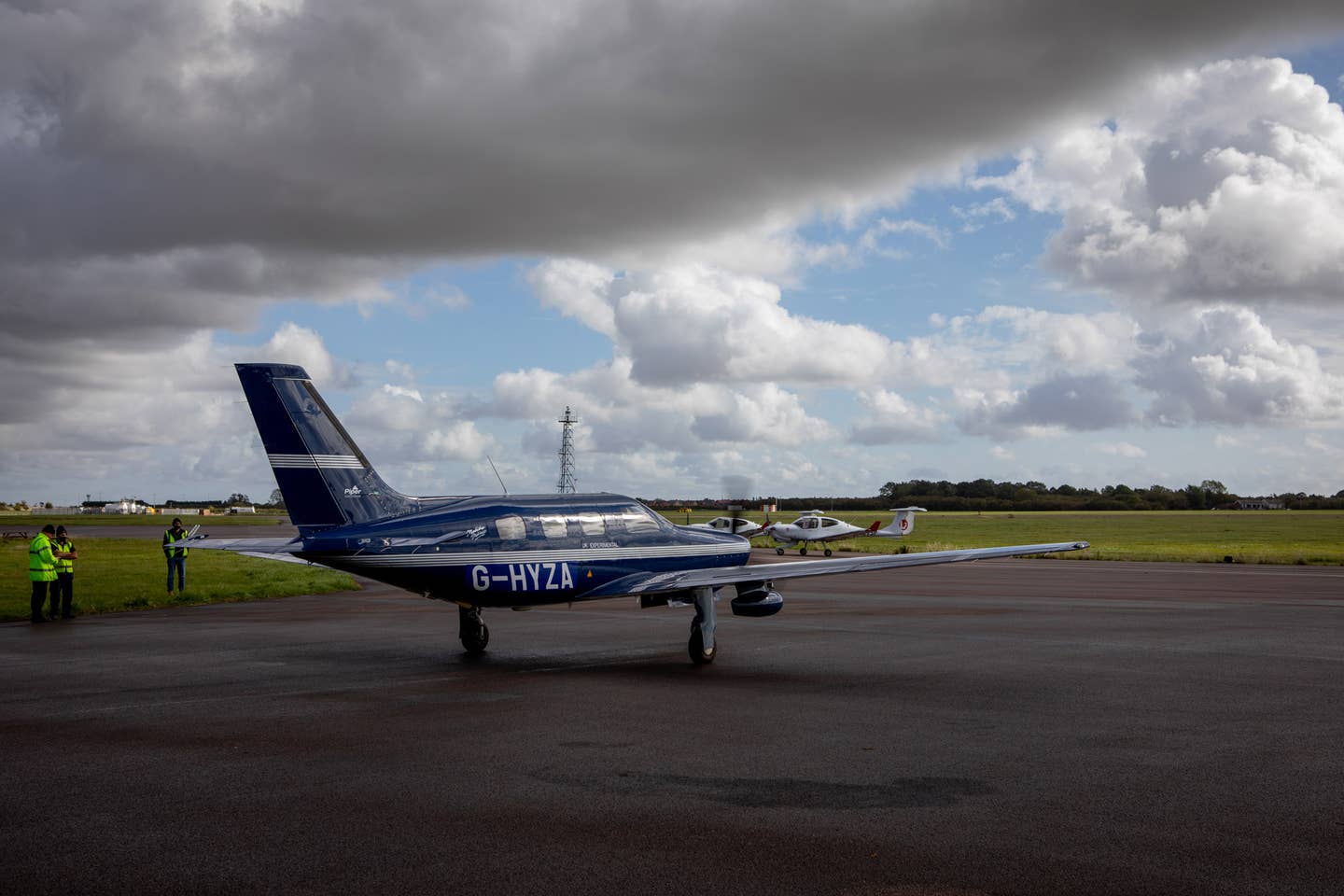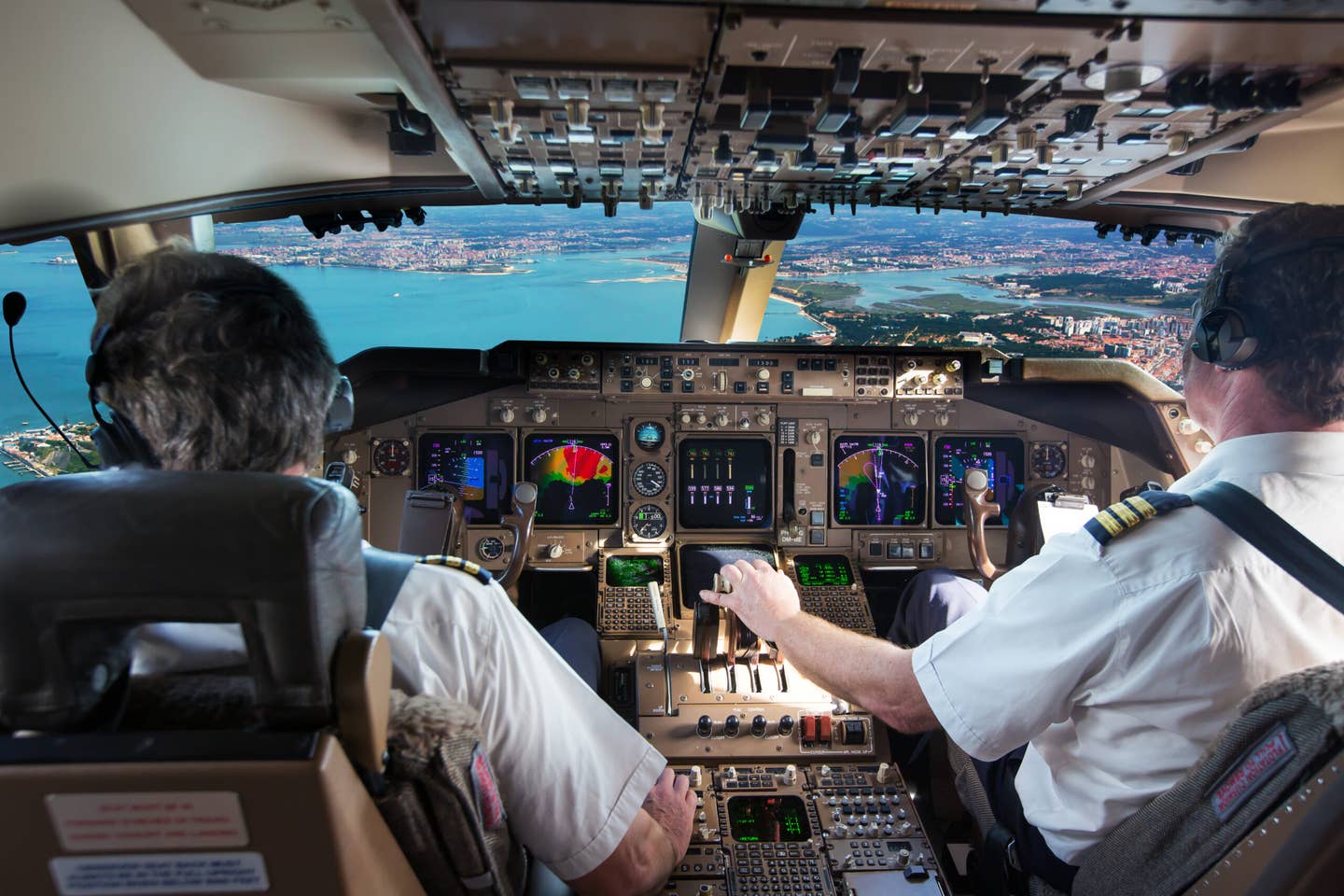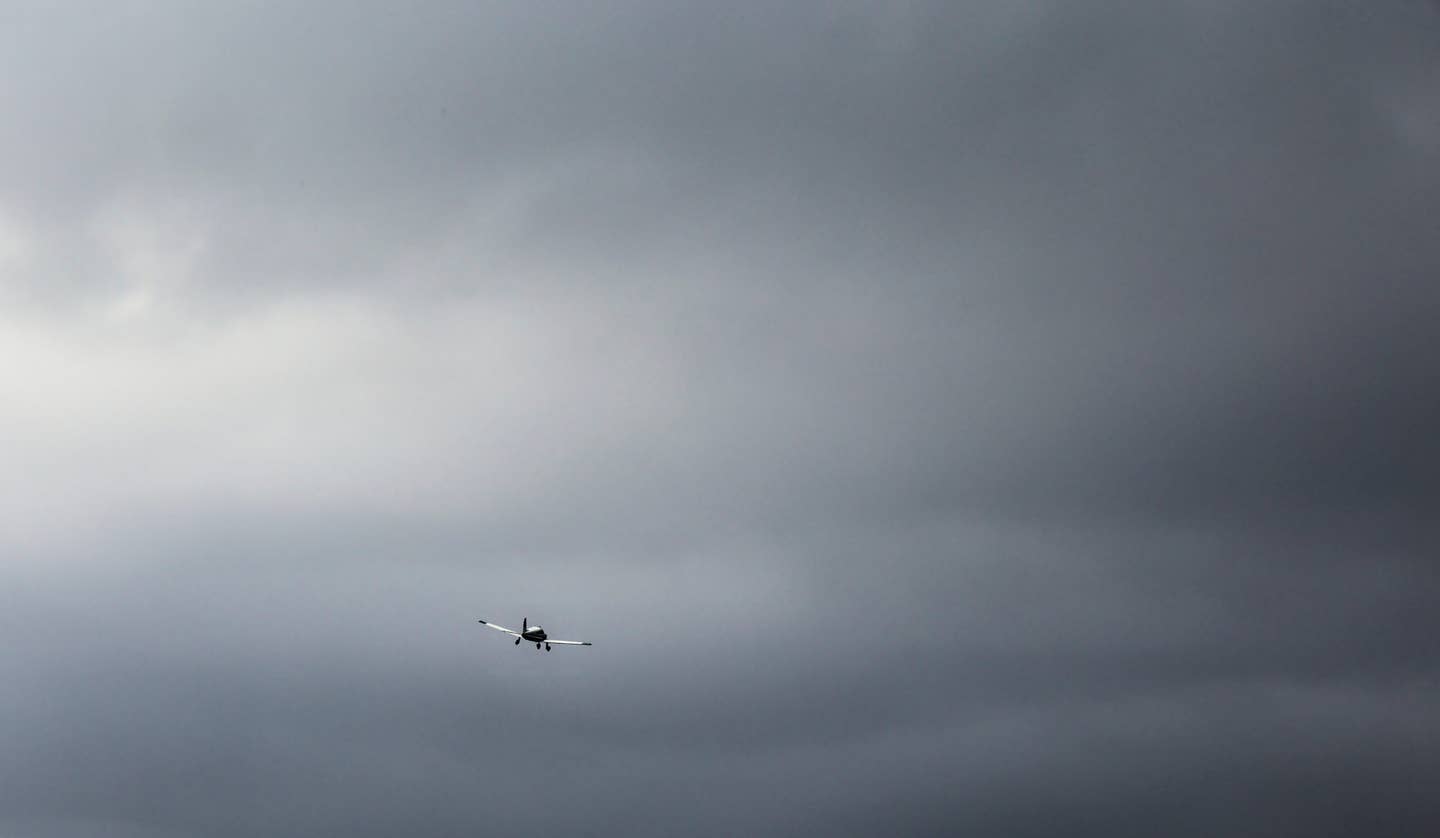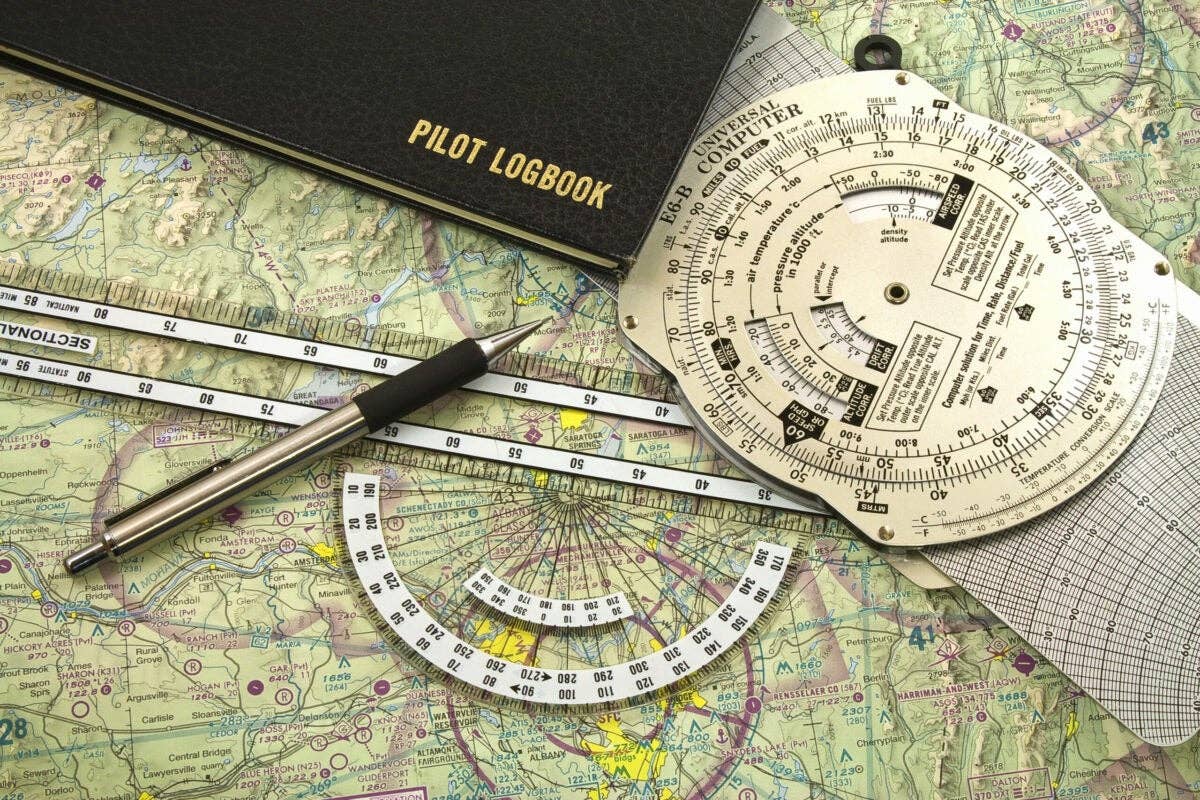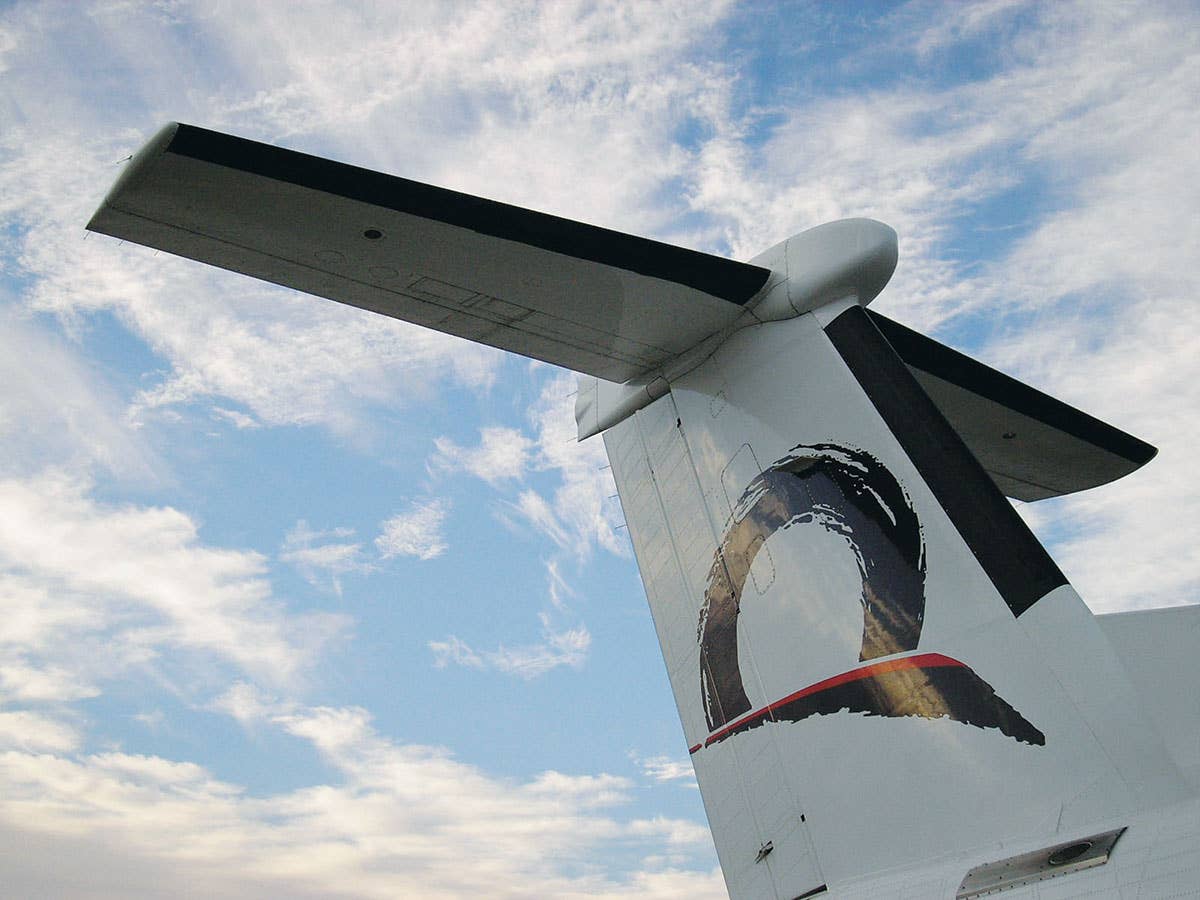
Getting the aspiring professional pilot headed down the right road. Sam Weigel
Tick, tock. I resisted the temptation to look at my watch, then stole a furtive glance into my shirt cuff. Still only 2:15 p.m. I'd been at Horizon Air's operations center on the edge of the Portland International Airport for a little over four hours, but it seemed much longer, and now time was slowing to a near standstill as I awaited my fate. I leaned back in my chair, self-consciously straightened up, readjusted my tie and smoothed out my suit coat. I was replaying each part of the interview in my head. I knew it hadn't been perfect — but was it good enough? I'd soon find out. I'd been trying to get hired by Horizon for nearly a year, and the thought that all that effort had gone to waste was almost too much to bear. Lost in my thoughts, I barely noticed the approach of a neatly dressed secretary. "Mr. Weigel?" I jumped to my feet. "Capt. Haugaard will see you now."
As I wrote last month, getting hired for most flying jobs is a two-part process. In the application phase, the objective is to set yourself apart from the crowd and score that all-important invitation to an interview. The most lucrative jobs can attract hundreds or even thousands of applicants, so simply getting the call can feel like a major accomplishment. It's no time to rest on your laurels, though, because the interview itself is its own major challenge. You have one chance to nail it, and success is far from assured. Even supremely qualified candidates frequently get passed over due to poor interviewing performance.
The interview at Horizon Air was one of eight over the first 15 years of my flying career. Every one was different, and I learned a great deal from all of them. Over time, I've come to recognize some of the common ingredients that make for a successful aviation interview. This isn't a comprehensive guide by any means, but it will get the aspiring professional pilot headed down the right road.
Know What's Coming
Every company has a different interview process. A few may involve little more than an informal chat with the boss; most, however, tend to be rigidly structured daylong or even multiday events. At Horizon the interview consisted of a written exam, simulator check ride, and one-on-one interviews with human resources and the chief pilot. Other companies might include a panel interview, group exercises, technical interview, cognitive test, medical exam and/or psychological battery.
The process should come as no surprise to you on your big day. Some companies are entirely upfront about it, but most require some digging. This is where having internal contacts can be helpful, though their information may be less useful if it has been a while since they interviewed. Otherwise, there is a great deal of "interview gouge" on the Internet — again, though, its usability depends on its recency. Try airlinepilotforums.com or willflyforfood.com.
Hit the Books
Your target company already knows about your education, FAA certificates and flight experience through your application. In the interview they will focus on the things that are difficult to ascertain from afar — like just how deep your knowledge level goes. Some companies use a written test while others prefer to conduct an oral technical interview. Either way, you need to know your stuff, and even sharp pilots should study up.
First, you should have the knowledge required by your current job down cold. I've been asked surprisingly in-depth Piper Navajo systems questions by an airline manager who flew them in a previous life. Secondly, you should know everything required of the job you're interviewing for. For flight instructing, study everything covered by the FAA's Commercial, CFI and Fundamentals of Instructing knowledge exams. For a corporate or airline job, know everything required of an ATP. The Gleim test prep books are useful study material; I'd also recommend Airline Pilot Technical Interviews by Ronald McElroy, The Turbine Pilot's Flight Manual by Greg Brown, and Everything Explained for the Professional Pilot by Richie Lengel.
Practice Makes Perfect
You will usually be interviewed by some combination of HR, a chief pilot, a line check airman and/or a retired pilot, either as a panel or one-on-one. Their questions will be designed to get a better feel for what sort of person you are and how well you fit their corporate culture. The questions will frequently take the form of "Tell me about yourself"; "What do you think about _____"; "What would you do if _____"; or "Tell me about a time when _____."
Your interview prep should include a pretty good sampling of potential questions. Your preparation shouldn't focus so much on crafting canned answers to questions, but rather on becoming comfortable with answering unanticipated questions on the fly. Some people are natural storytellers, but most of us need practice to be good at it. Compile a master list of questions, and have friends and family members ask you them at random. Try to come up with a different answer every time you respond to a particular query. You don't want to develop a litany of scripted answers, but you do want to have a bank of relevant experiences that you can draw upon and retell in a smooth and credible fashion. If interviewing with a major airline, I would even suggest using a professional interview prep service. Some of the most popular services include Emerald Coast Interview Consulting, Cage Marshall Consulting, Clark Aviation Consulting and Aero Crew Solutions.
Simulator check rides are another area in which practice pays dividends; again, for major airlines you can arrange this through an interview prep service. Horizon conducted its rather in-depth sim ride in a Frasca 242 flight training device. To prepare, I practiced on a Frasca 132 to which I had free access, then grabbed an instructor friend and rented a nearby F242 for two hours. Flying an NDB approach in a honking crosswind in Horizon's twitchy Frasca wasn't nearly as stressful as it might have been if I hadn't done the same thing a few days earlier.
Dress for Success
Standard interviewing advice is to dress one step above the position you're interviewing for, but in aviation this maxim doesn't really apply. Your goal is to "fit the mold" of whatever sort of pilot your target company is looking for. For flight instructing or other entry-level jobs, a polo shirt and khakis are usually sufficient. For a Part 135 gig, a dress shirt, tie and slacks would be appropriate. Any interview beyond this — for a corporate, fractional or airline position — requires the standard interview suit. For men, this is a dark blue or black two-piece business suit of traditional cut. The jacket should be single-breasted with two or three buttons. The dress shirt should be fairly muted, and the tie a solid color or subtle pattern. For women, the interview suit is not quite so rigidly prescribed and a variety of fashions are seen. A skirt of modest length is fine, but many women still opt for trousers.
When I was a broke college student trying to score an internship with TWA, I borrowed a couple hundred bucks from my parents to buy a decent suit for the interview. That suit lasted for seven more interviews over the next 15 years. Business-wear fashions changed several times over the same span, which brings up an important point: While your suit should fit well and be of decent quality, fashion counts for very little. You are trying to project a staid, conservative image. This is one case in which you don't want to stick out in the crowd. Have pilots been hired wearing everything from plaid sport jackets to powder-blue tuxes? Sure, but far more were hired wearing the same basic drone suit.
Check Your Attitude
It's important to come into the interview with the right mindset. Regardless of what's happened in your career so far, you need to display a positive attitude. Speaking poorly of past or present jobs, employers or coworkers is a big no-no. Most interviewers will ask a few questions that invite a negative response ("Tell me about a time you disagreed with a superior"); you need to answer in a way that portrays personal growth, rather than simply being right.
You should appear confident and at ease, but in good measure. I once blew a panel interview at a regional airline and couldn't figure out why. In retrospect, I was being inappropriately chatty and joking with the other stiff-lipped applicants, and a bit too flippant in my answers to the panel. I knew I was well-qualified for the job, had never failed an interview in my life and let my guard down. Success is never a given.
Be Yourself, to a Point
I don't mean to imply that you should look, act and speak like a pilot drone at all times — because it's not entirely true. Interviewers want to know they're not hiring a wild man, but they also want to get some sense of your personality, intellect and interests.
At Horizon, my chief pilot interview took a strange turn when we ended up discussing the Armenian Genocide — hardly light getting-to-know-you fare (at the time, my wife taught school in a heavily Armenian district) — but it turned out we both had an interest in history. Keep it professional, but it's perfectly OK to let your human side show, especially when you have a shared connection with the person on the other side of the table.
Don't Get Rattled
Interviews are naturally stressful events. Much like with check rides, the stress is greatest just before they begin. Once you're in the thick of it, you just do what you've been practicing. That said, interviewers want to see how you handle stress, and there will usually be some portion of the interview designed to see how you react to adversity, even confrontation.
During my Horizon interview, the imposing head of HR looked over my resume, leaned in close, and said, "Let's see, you instructed at two schools and flew cargo for two companies, all in the space of three years. You know what I think? I think you're going to fly for us for three years, get bored and quit to go somewhere else."
My first reaction was anger, but then I calmed down and reminded myself that this was just part of the process. I smiled, paused to collect my thoughts, and replied, "Yes, Joanne, unfortunately aviation has been unstable the last few years, and I had to move a few times. I'm grateful that I got a good variety of experience out of it, but frankly I'd prefer to settle down. I think Horizon Air is the perfect place to do it."
That was the crowning triumph of the interview. Two questions later I crashed and burned, fumbling over an easy story about a time I went out of my way to help a coworker. An hour later, as I followed the assistant down the hall to the chief pilot's office, it was that flubbed answer — and the failed panel interview at another airline two weeks prior — that burned in the back of my head.
I stepped into Capt. Haugaard's office. He invited me to sit down and wasted no time getting to the point. "I think you're a great guy and a heck of a pilot, Sam, and I want to hire you to fly the Q400."
Pure elation! In a flash, the course of my life changed forever. As it happened, I would only stay at Horizon for three pleasant years before reluctantly leaving for another airline — just as the HR lady predicted — but that's a story for another time.

Sign-up for newsletters & special offers!
Get the latest FLYING stories & special offers delivered directly to your inbox

